Kenneth Okonkwo's Dissatisfaction with the Labour Party
Kenneth Okonkwo, the former Labour Party (LP) presidential campaign council spokesperson, has recently expressed his deep dissatisfaction with the party's current state of affairs. Known for his vocal stance on political integrity, Okonkwo cited significant inefficiencies within the LP as reasons prompting him to reconsider his allegiance to the party. One of the most pivotal issues highlighted by Okonkwo was the party's failure to hold a successful and legitimate national convention. He revealed that he was not even aware of the conventional event until he stumbled upon it on social media, a tale he described as a 'leprous convention.'
Labour Party's Leadership Crisis
The LP has been entangled in a severe leadership crisis since 2023, resulting in internal chaos and organizational setbacks. Lamidi Apapa’s faction within the party made headlines by unilaterally declaring him as the acting national chairman. Meanwhile, despite a recent national convention in Anambra that saw the re-election of Julius Abure as chairman, there has been no on-ground monitoring by the Independent National Electoral Commission (INEC), casting doubts on the legitimacy of the leadership claims. This tumultuous environment has left many like Okonkwo questioning the party's capability to steer the political agenda effectively.
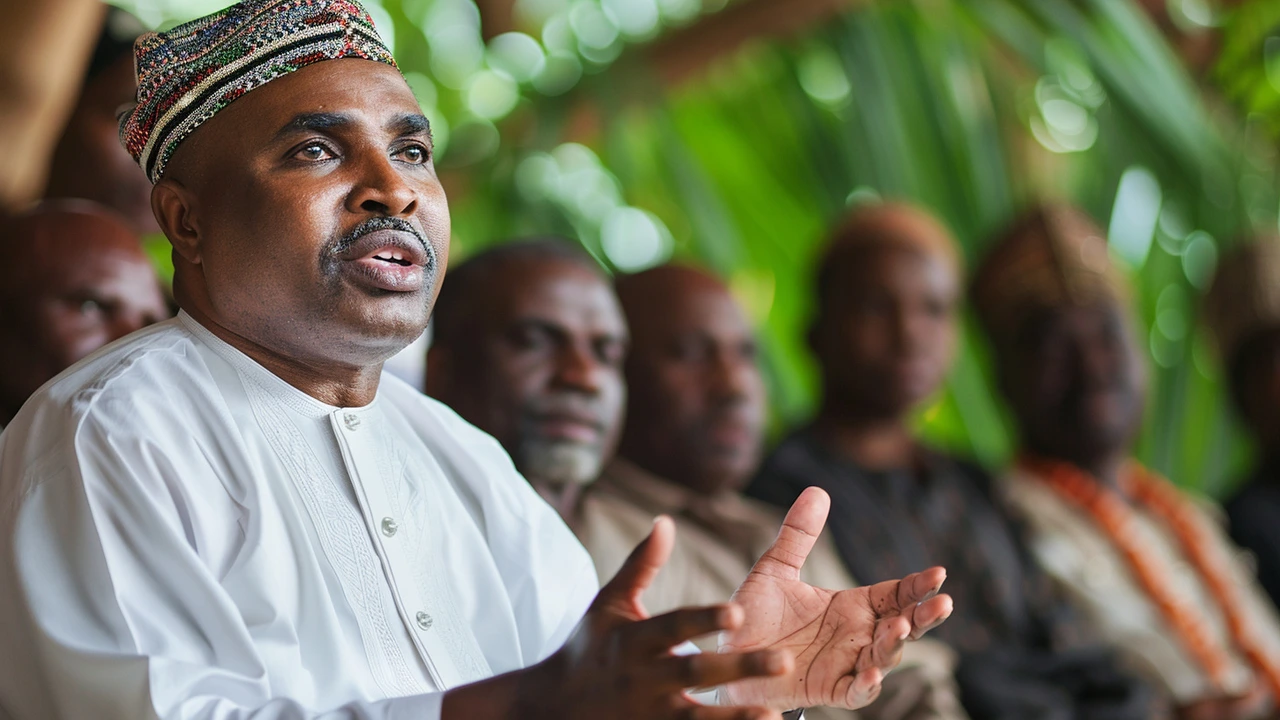
Reflection on the Party's Priorities
Okonkwo's main bone of contention appears to center on the LP's apparent lack of prioritizing the welfare of Nigerians. He has been an advocate for a political system that places the interests and wellbeing of ordinary citizens above all else. Unfortunately, Okonkwo believes that the ongoing internal destabilization and leadership squabbles within the LP undermine these core values, pushing the party further away from its mission.
Issues at the National Convention
During the national convention held in Anambra, the re-election of Julius Abure as chairman was overshadowed by controversy. The LP's Board of Trustees (BoT) branded the convention a 'charade,' following a court order that eventually resulted in Abure’s dismissal from his role. Such judicial interventions and challenges to leadership have only compounded the woes faced by the LP, emphasizing the depth of the internal turmoil the party grapples with.
Contemplating a Return to the APC
In an intriguing twist to his political narrative, Okonkwo, who had previously exited the All Progressives Congress (APC) in 2022 over its contentious Muslim-Muslim ticket, is now considering a return to the APC fold. His potential shift back to the APC underscores the profound levels of disenchantment with the Labour Party. To Okonkwo, staying loyal to a party that seems distracted by internal conflict and detached from its foundational promises to Nigerians does not align with his political principles and the broader vision he holds for Nigerian politics.
Implications for Nigerian Politics
Kenneth Okonkwo’s potential departure from the Labour Party not only signifies personal disillusionment but also reflects broader concerns about the state of opposition parties and their effectiveness within Nigeria’s political landscape. As political arenas go, stability and coherence play pivotal roles in garnering public trust and mobilizing grassroots support. The current disarray within the LP could weaken its influence and tarnish its public image further.
The situation within the Labour Party also highlights the importance of robust leadership and transparent governance structures within political parties. Without these fundamental attributes, parties risk alienating key figures and supporters alike, ultimately diminishing their potential to act as viable alternatives to the ruling party.
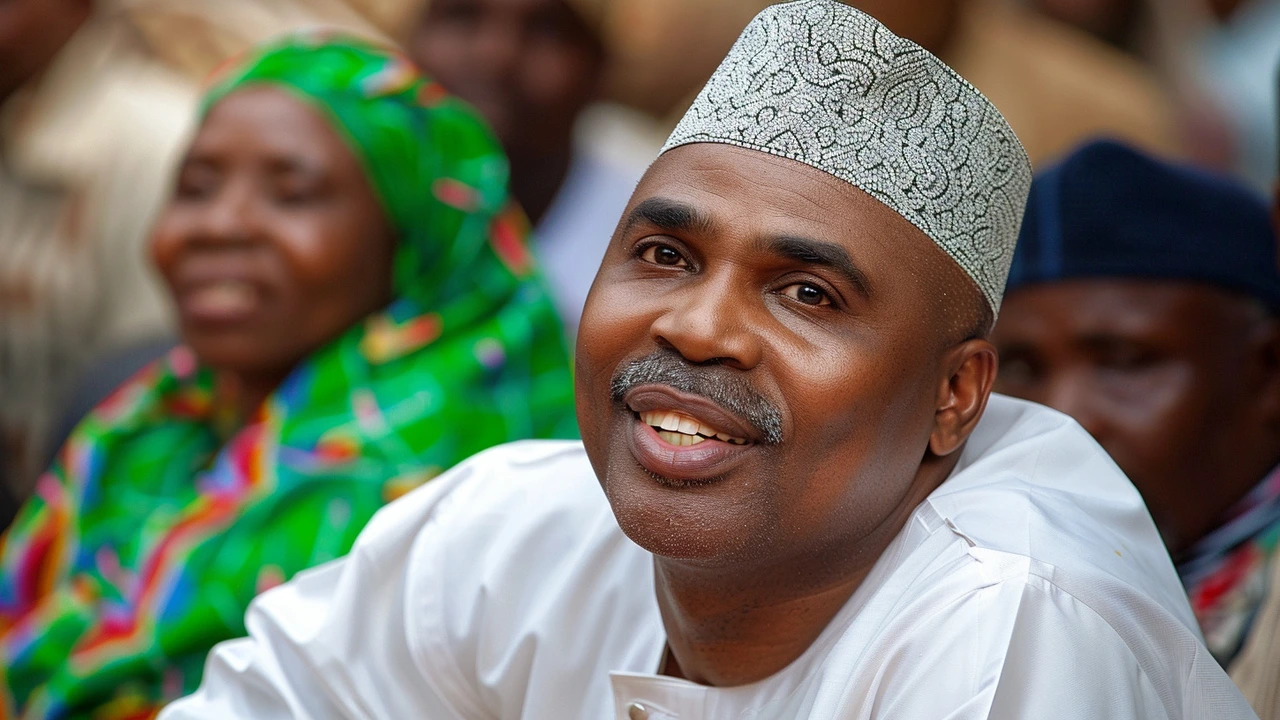
A Call for Political Accountability
Okonkwo's situation underscores the critical need for political accountability and organizational efficiency in Nigeria's political parties. For parties to genuinely serve the populace, they must operate with a high degree of integrity, clarity, and purpose. The scenario playing out within the Labour Party serves as a sobering reminder of the consequences that arise when these elements are lacking.
In the coming weeks, the political landscape will be closely watching Kenneth Okonkwo’s next moves. Whether he decides to return to the APC or explore other political avenues, his actions will likely spark further discussions about party loyalty, leadership, and the relentless quest for a political system that genuinely prioritizes the needs and welfare of the Nigerian people.
Lessons for Political Parties
The leadership crisis within the LP offers several lessons for political parties across Nigeria. Upholding internal democracy, ensuring transparent electoral processes within the party, and maintaining focus on service delivery and the welfare of the electorate are paramount. It is through these measures that parties can cultivate lasting trust and support from their members and the general populace.
Moreover, by addressing internal conflicts proactively and prioritizing the interests of the people, political parties can avoid the pitfalls of internal fragmentation and bolster their standing as credible options in the Nigerian political sphere. The experience of the LP should serve as a case study for other parties to review their internal practices and ensure they are aligned with the broader goals of political stability and progressive governance.
The Road Ahead
As Kenneth Okonkwo navigates this critical juncture in his political career, his journey underscores the dynamic and often turbulent nature of Nigerian party politics. His decisions and the ensuing reactions will provide further insights into the evolving dynamics of political allegiance and leadership in Nigeria.
Ultimately, the narrative surrounding Okonkwo and the Labour Party is a microcosm of the larger challenges faced by many political entities in Nigeria. It reminds us of the vital need for political structures that are resilient, transparent, and committed to the overarching goal of enhancing the lives of the Nigerian people.
As we observe these developments, the political stakeholders and the electorate must remain vigilant, ensuring that their voices are heard and their interests are represented in the corridors of power. Only through such collective vigilance can Nigeria's democracy continue to grow and mature, fostering a political environment that truly reflects the will and aspirations of its people.

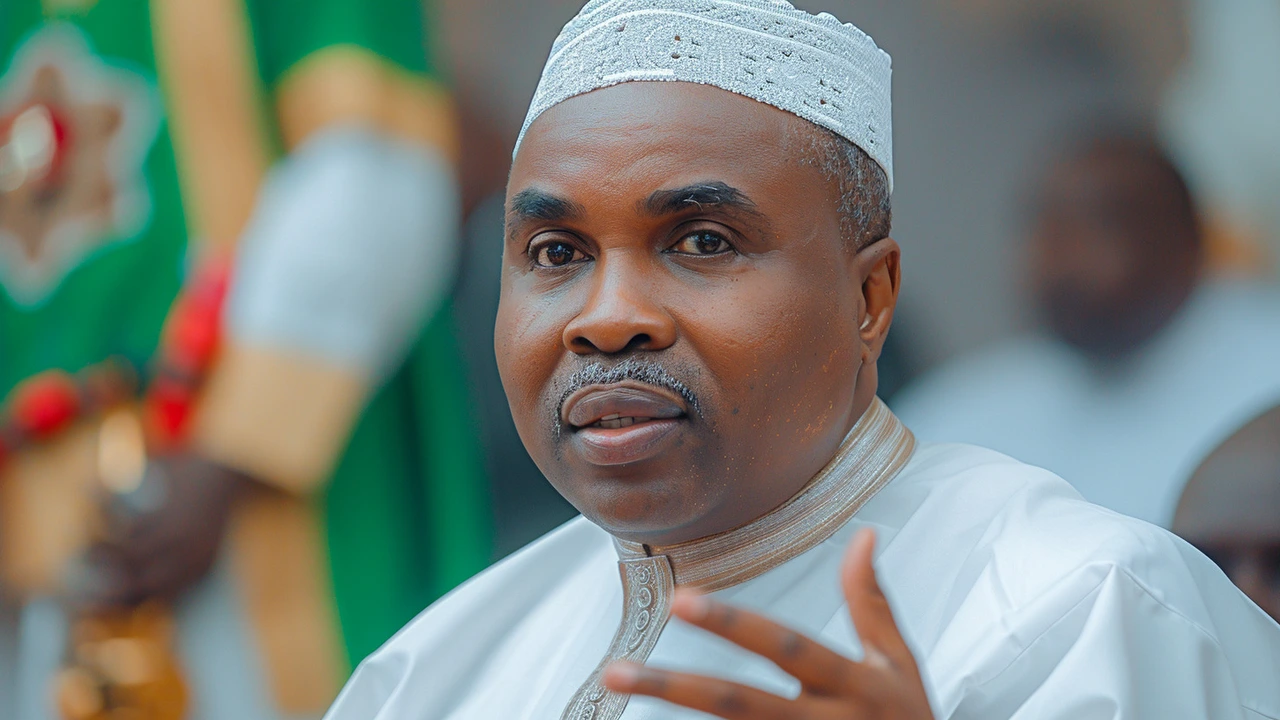

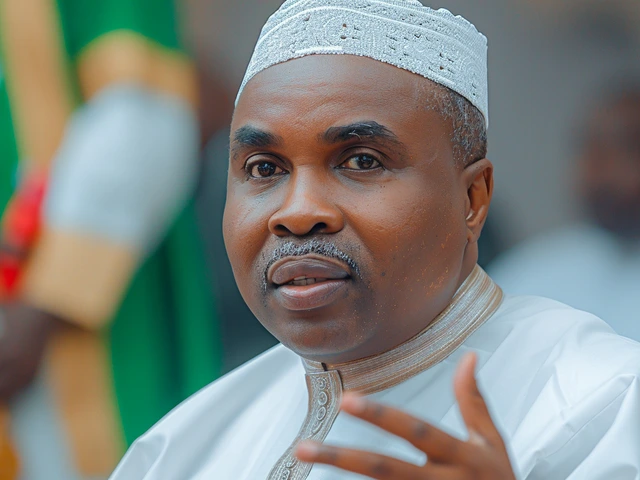
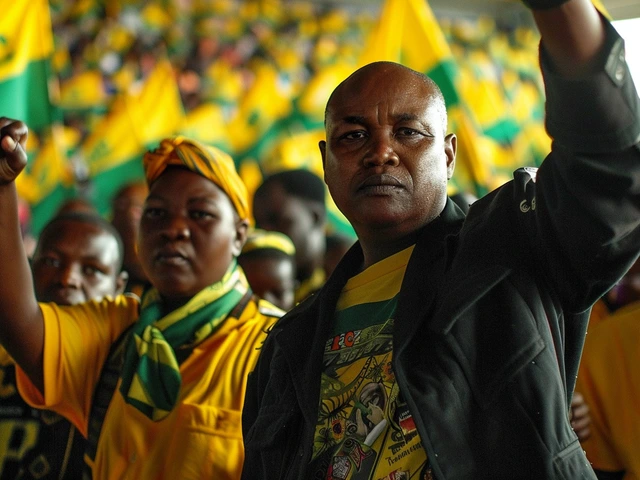
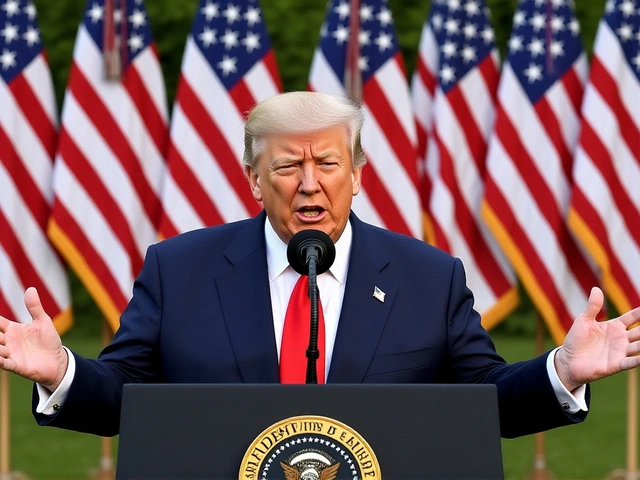

Josh Tate
Man, it’s sad to see another politician get fed up with their own party. The LP’s mess feels like a house of cards that’s finally toppling.
John Smith
Honestly, the LP has been a sinking ship for years; anyone with half a brain knows this was coming.
Alex Soete
I've been following the LP saga since the early days, and the chaos just keeps stacking up like a bad sitcom. First, there’s the whole “leprous convention” fiasco that no one even saw coming. Then the leadership tussle between Lamidi Apapa’s faction and the re‑elected Julius Abure, which feels like a reality‑TV drama with no audience. The courts stepping in to dismiss Abure only adds another layer of absurdity to an already tangled mess. Inside the party, you can hear whispers of members who feel completely abandoned, and that’s a huge red flag for anyone who cares about grassroots politics. What’s more, the INEC’s silent stare at the whole process makes you wonder if there’s any real oversight at all. All this noise is not just political theater; it actually hurts the ordinary Nigerians who hoped the LP would be a fresh alternative. Kenneth Okonkwo’s frustration is understandable when you consider how the party’s internal squabbles divert attention from real policy discussions. The fact that he even considered re‑joining the APC after leaving it over a Muslim‑Muslim ticket shows how desperate the search for a stable platform has become. If the LP can’t even organize a credible convention, how can it promise effective governance? The party’s inability to enforce transparent internal elections shows a deeper structural weakness that will likely persist unless there’s a massive overhaul. You’d think a party that markets itself as a voice for the people would have its house in order, but that’s far from the reality on the ground. In the end, the LP’s current trajectory could push more disillusioned supporters to the sidelines, which weakens the whole opposition space. It’s a tragic example of how internal fragmentation can erode political credibility. Hopefully, this crisis will serve as a wake‑up call for parties across Nigeria to prioritize solid internal democracy over factional infighting.
Cara McKinzie
Ugh, the whole thing is just a hot mess… like, why bother? They’re all drama queens.
Joseph Conlon
Seeing Okonkwo contemplate a return to the APC feels like watching someone walk back into a house they just left because the roof leaked. The LP’s internal disputes have left a gaping void that any party with a decent structure could fill. However, the APC isn’t without its own controversies, especially the Muslim‑Muslim ticket that drove Okonkowo away in the first place. This back‑and‑forth might just be a sign that many politicians are more concerned with staying relevant than with ideological purity. At the end of the day, the electorate will decide if these moves are just political opportunism.
Mohit Singh
Another politician jumping ship? Typical. The LP’s leadership is a circus.
Damian Liszkiewicz
It’s fascinating how leadership vacuums can become catalysts for reflection 🌱. When a party loses its sense of direction, it forces its members to reassess what they truly stand for. In this case, Okonkwo’s dilemma showcases the tension between personal principle and collective ambition. Perhaps the LP can use this moment to rebuild from the ground up, emphasizing transparency and genuine public service. Until then, the political landscape will remain a patchwork of shifting alliances.
Angela Arribas
Honestly, the article is riddled with vague phrasing and unnecessary jargon. It would benefit from clearer, more concise language 😊.
Sienna Ficken
Oh great, another “deep” political drama-just what we needed to spice up our weekend binge‑watching. The LP’s “leprous convention” sounds like a thrilling new Netflix series, except nobody paid for the tickets.
Zac Death
I get why Okonkwo is feeling the pressure; staying in a party that’s constantly arguing with itself is like trying to run a marathon in quicksand. The LP’s leadership crisis has been dragging on for far too long, and it’s draining the energy of anyone who actually wants to make a difference. When you witness factions fighting over who gets to wear the chairman’s hat, it’s hard to stay optimistic about any real policy progress. Still, I have hope that this shake‑up could be the spark that forces a serious re‑evaluation of internal processes. If the LP can pull together a transparent convention and clear up the legal mess, they might still salvage some credibility. Until then, it’s understandable why seasoned political operatives would consider jumping ship for a more stable platform.
Lizzie Fournier
The whole situation really highlights how fragile party structures can be when there’s no clear succession plan. It’s a reminder that good governance starts from within, not just in public offices.
JAN SAE
Wow, what a whirlwind of events, and it really shows that political loyalty is often tested, especially when internal conflicts arise,; but remember, every challenge also brings an opportunity to reassess one's values,; keep an eye on how parties evolve,; and stay informed,; because informed citizens make the biggest difference!
Steve Dunkerley
From an organizational behavior perspective, the LP’s current turbulence can be modeled as a classic case of systemic failure due to fragmented governance mechanisms. The lack of cohesive leadership not only undermines party legitimacy but also erodes stakeholder confidence, which is critical for policy advocacy.
Jasmine Hinds
Stay hopeful folks! Change can happen even in chaotic times :)
Madison Neal
It’s disheartening to watch a party that once held promise become mired in bureaucratic gridlock and factional infighting. The implications for democratic consolidation are significant.
John Crulz
The shift back to the APC could signal a strategic realignment, but it also raises questions about the long‑term impact on the opposition’s credibility. Only time will tell how voters interpret these moves.
Anita Drake
We should remember that political parties are reflections of the societies they serve, and when they falter, it’s a signal for broader civic engagement and reform.
Eduardo Lopez
While it’s easy to mock the LP’s internal mess, it’s also a stark reminder that ethical leadership cannot be an afterthought. Parties must prioritize accountability if they hope to earn public trust.
Nancy Perez de Lezama
In summary, the LP’s leadership crisis undermines its effectiveness as an opposition force.